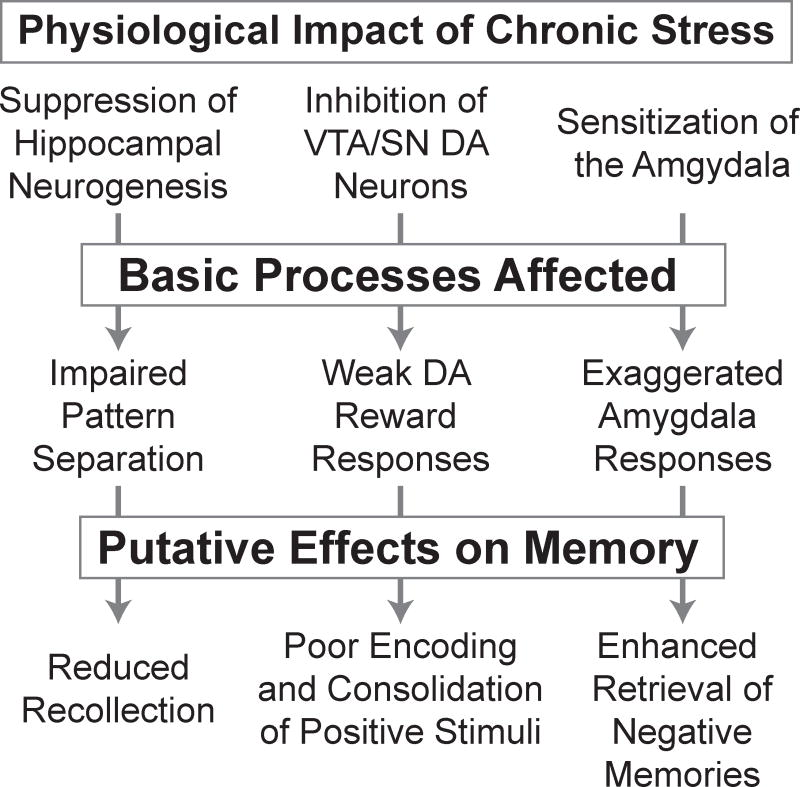Figure 1. Chronic stress induces physiological changes that disrupt basic neurocognitive processes, contributing to the specific memory deficits observed in depression.
Key references for the effects summarized in the flow diagram are noted in the following sentences. Physiological impact of chronic stress on: suppression of hippocampal neurogenesis [15], inhibition of midbrain dopamine (DA) neurons [87], and sensitization of the amygdala [14]. Basic processes affected by chronic stress: impaired pattern separation [21], weak dopaminergic reward responses [88], and exaggerated amygdala responses to emotional stimuli [14]. The putative effects on memory are discussed in the main text; the link between impaired pattern separation and reduced recollection is speculative, the hypothesized relationship between disrupted dopaminergic reward responses and poor encoding and consolidation of positive events in depression is developed in [39], and the amygdala’s role in negatively biased memory retrieval in depression is described in [58,59].

